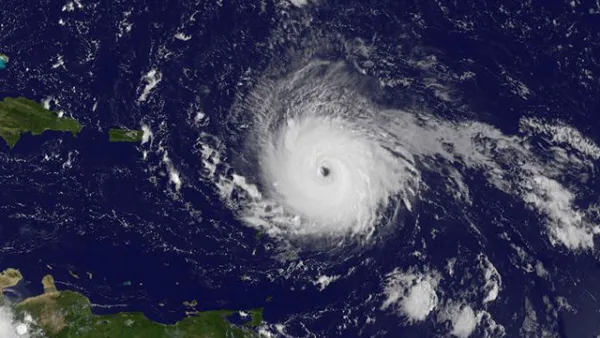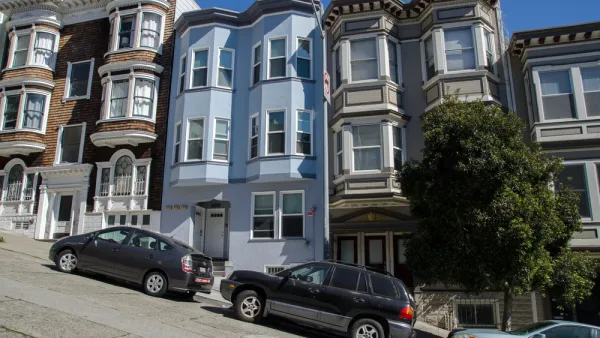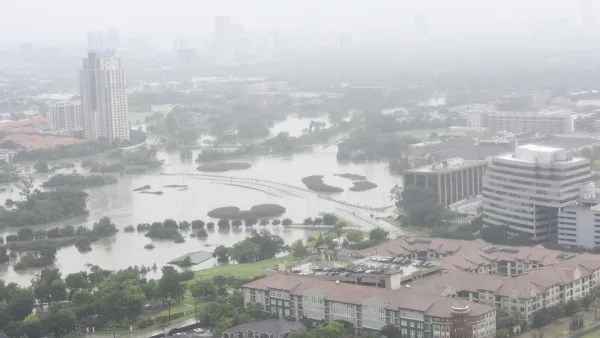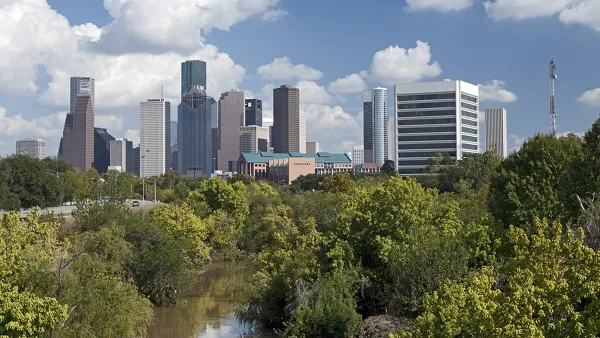Irvin Dawid discovered Planetizen when a classmate in an urban planning lab at San Jose State University shared it with him in 2003. When he left San Jose State that year, he took with him an interest in Planetizen, if not the master's degree in urban & regional planning.
As a long-time environmental activist, he formed the Sustainable Land Use committee for his local Sierra Club chapter and served six years on the Bay Area Air Quality Management District’s Advisory Council from 2002-2008. He maintains his interest in air quality by representing Sierra Club California on the Clean Air Dialogue, a working group of the Calif. Environmental Dialog representing business, regulatory and public health/environmental interests.
Major interests include transportation funding, e.g., gas taxes, vehicle miles traveled (VMT) fees, road tolls and energy subsidies that lead to unlevel playing fields for more sustainable choices.
He hails from Queens (Bayside) and Long Island (Great Neck); received an AAS in Fisheries & Wildlife Technology from SUNY Cobleskill and a B.S. from what is now Excelsior College.
After residing for three years on California’s North Coast, he’s lived on the San Francisco Peninsula since 1983, including 24 years in Palo Alto. Home is now near downtown Burlingame, a short bike-ride to the Caltrain station.
He’s been car-free since driving his 1972 Dodge Tradesman maxi-van, his means to exit Long Island in 1979, to the junkyard in 1988.
Major forms of transportation: A 1991 'citybike' and monthly Caltrain pass, zone 2-2. "It's no LIRR, but it may be the most bike friendly train in America."
Irvin can be reached at [email protected]

Caribbean Islands Brace for Irma as Florida Prepares
As Houston and East Texas recover from Hurricane Harvey, an even stronger hurricane has formed in the Atlantic Ocean, headed to the Caribbean Sea, and likely Florida by this weekend, though there is uncertainty where it goes next.

Houston and San Francisco: Urban Development Patterns Gone Awry
With the media rightfully pointing to Houston's sprawling urban development patterns that exacerbated the epic flooding caused by Hurricane Harvey, Paul Krugman also finds fault with cities where urban development is too tightly regulated.

EPA's Scott Pruitt Dismisses Global Warming Connection to Houston Flooding
While any one event can not be attributed to global warming, climate scientists have long acknowledged a connection to extreme weather. Pruitt, a climate denier, dismisses any such connection with the amount of rainfall from Hurricane Harvey.

The Culprit of Houston Flooding: Sprawl, Not Lack of Zoning
As Houston's flood waters recede and attention turns from rescue to recovery and soon rebuilding, critics have pointed to the city's lack of zoning as the cause of the devastation. But are they looking in the right direction?

Rebuilding Houston After Harvey: 'Bigger and Better'
Those were the words President Trump expressed before his first trip to Texas while Hurricane Harvey was ravaging Houston. But experts worry that the rebuilding won't be better due to the recision of an Obama-era environmental regulation.

























